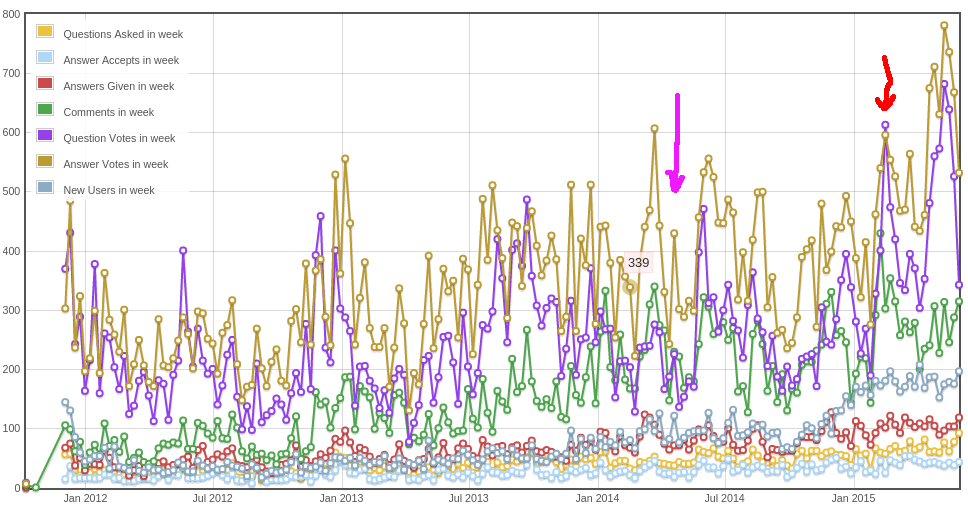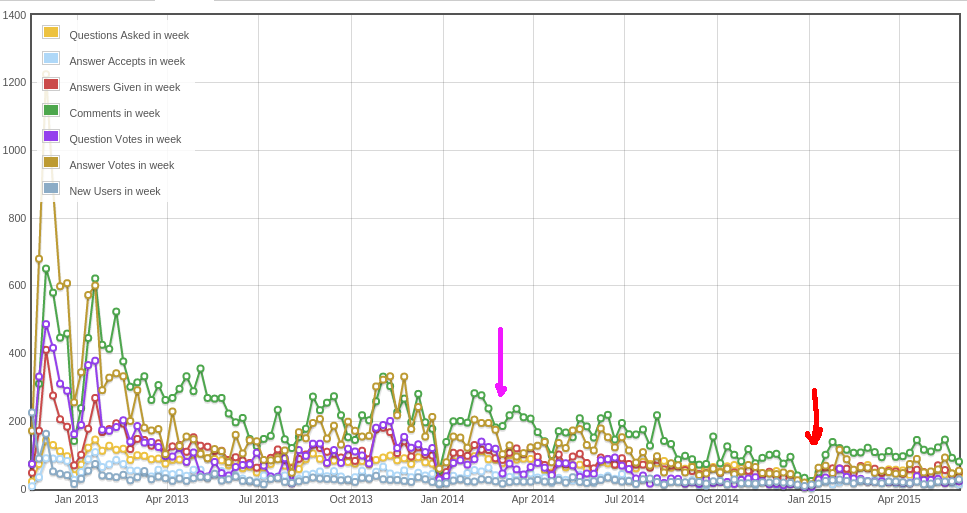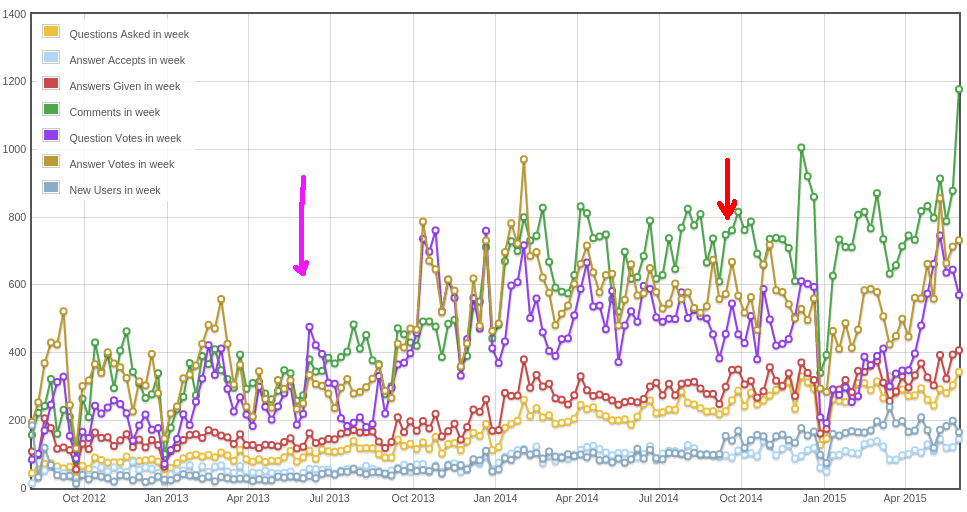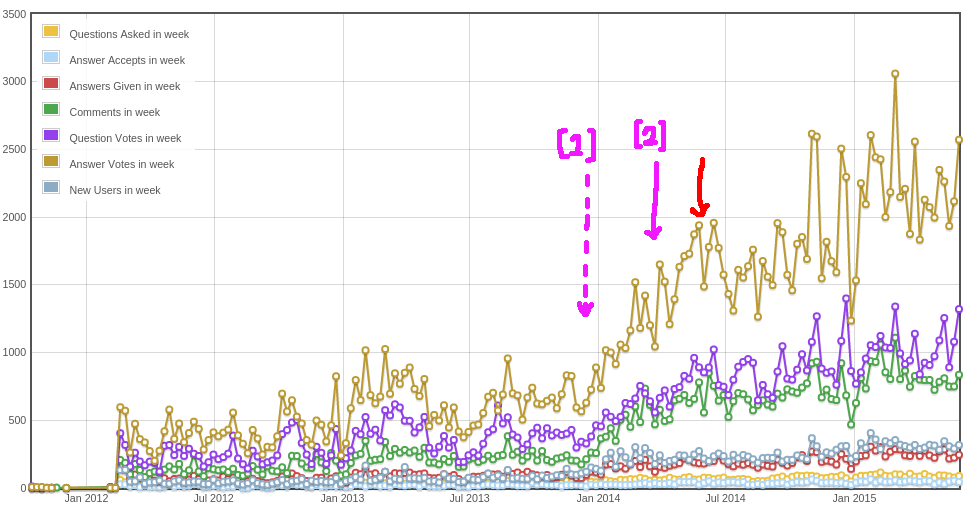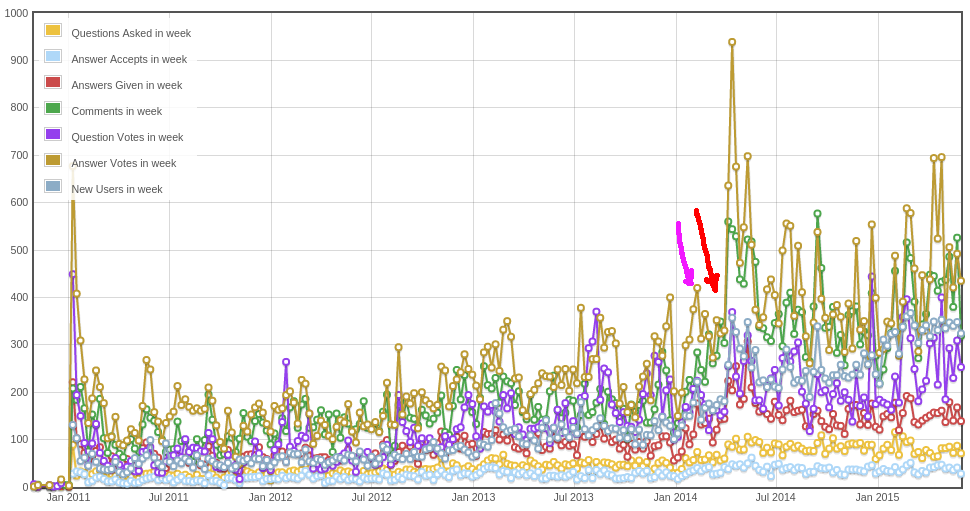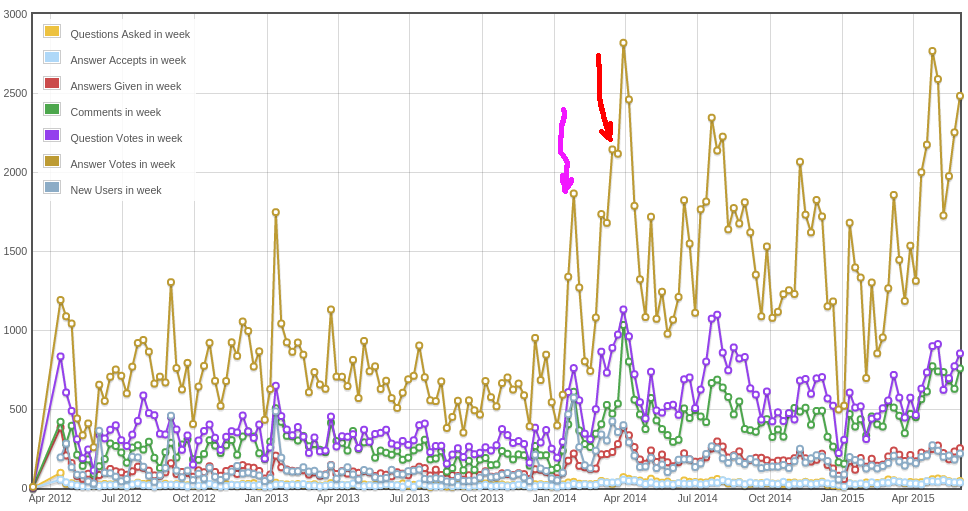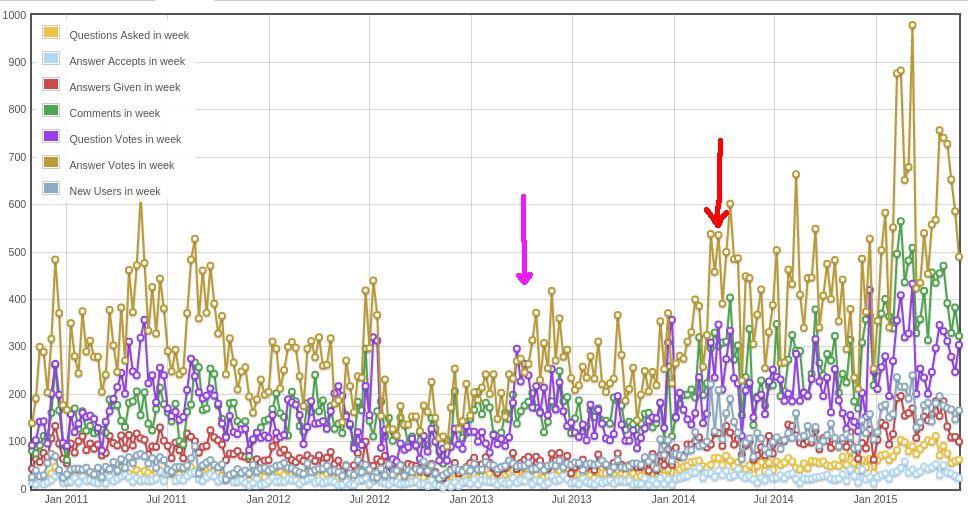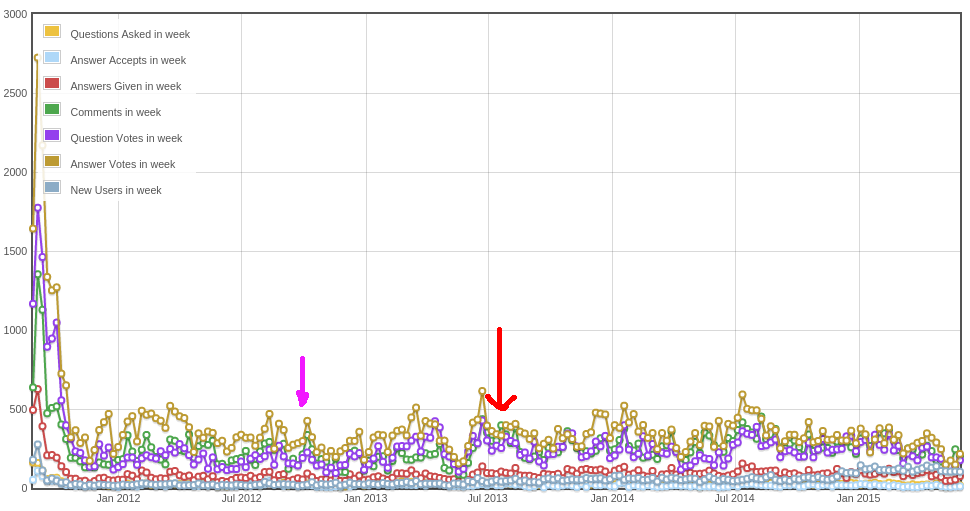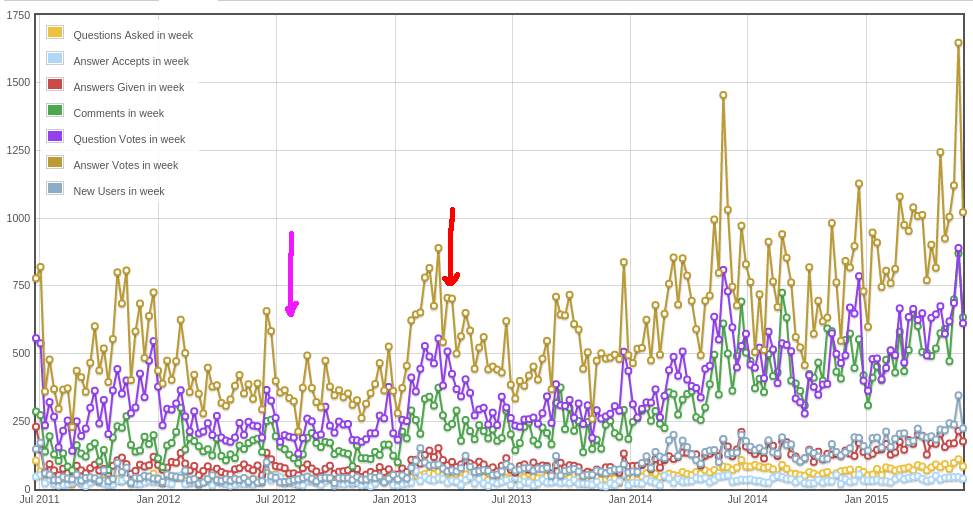I've been a long-time proponent of removing the "beta" label when it no longer makes sense. I agree that labeling a site as "beta" creates a lot of confusion… and a certain stigma when it looks like a site is never going to <quote> "get out of beta."
But let's be careful not to replace this system with another set of labels and arcane visual queues that few people are going to understand (more on that below). This is what the basic life cycle of a site should be:
Proposal ⇒ Private Beta ⇒ Public Beta ⇒ Site
We just need to use those labels as they were actually intended. Here are the basic phases and the use of those labels as I see it:
Proposal
The Area 51 process we use to gauge interest: Yes, this needs a lot… a lot of improvement, but that is outside the scope of this post.
Private Beta
Essentially the same we have now: a two three week limited trial to see if the site can work in actual practice. The site has a 'beta' label, but a system banner more-or-less describes what is going on. I work a lot with the newer sites, and I am exploring ways to better convey the expectations and progress of a site through these phases. It's essentially a checklist or calendar of where we are and what's coming next. Stay tuned.
Public Beta
This should be a 90 day period when a site is in its formative stages. The 'beta' label is a lightweight notice to anyone who happens upon a site that this is a work in progress — that the scope, community moderation, and basic site administration is subject to change.
90 days corresponds nicely with the earliest a site would ever be eligible for graduation. Typically a graduation takes much longer, but the post that sparked this discussion (Graduation, site closure, and a clearer outlook…) describes how a site would have to be under pretty dire collapse to be closed. So the public beta is essentially the lead up to that point where we can finally say that a site is no longer "in testing"… and will be allowed to continue indefinitely.
After 90 days, remove the "beta" label; they're clear. Enjoy!
But what happened to Graduation?
I actually would like to unbundle many of the features of graduation — allow our growing middle class of smaller, non-beta, non-graduated sites to benefit from the features they need, like elections, etc. It's essentially a meritocracy where we provide access to the features you need when you have sufficient support to use them effectively. The graduation "bundle" is too restrictive; unbundle those features.
That leaves the custom site design and increased reputation levels that define "graduation." Call it whatever you want — call it a custom site, or call it nothing at all — but personally, I really dislike calling it "graduation" at all. Outside the tiny minority of people who read these meta posts, graduation is always going to sound like the ultimate goal of this entire process — you pass, or you fail:
"you are not graduating" = "you have failed"
That's the reality of the English language, so why embrace a widely misunderstood premise? I have been writing about this for years, [two], [three], [four], and expecting everyone to RTFM is an an entirely ineffective way to run a site.

